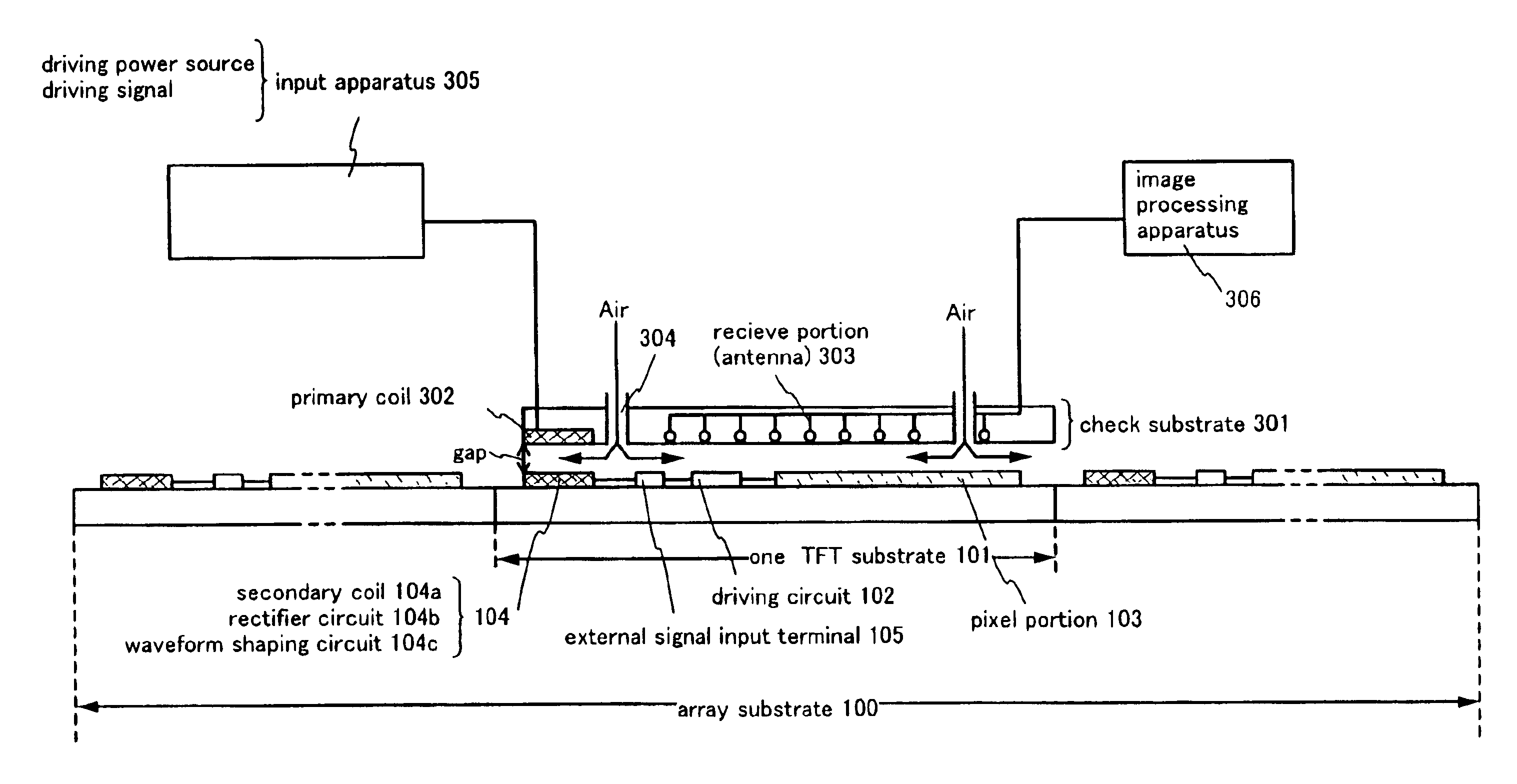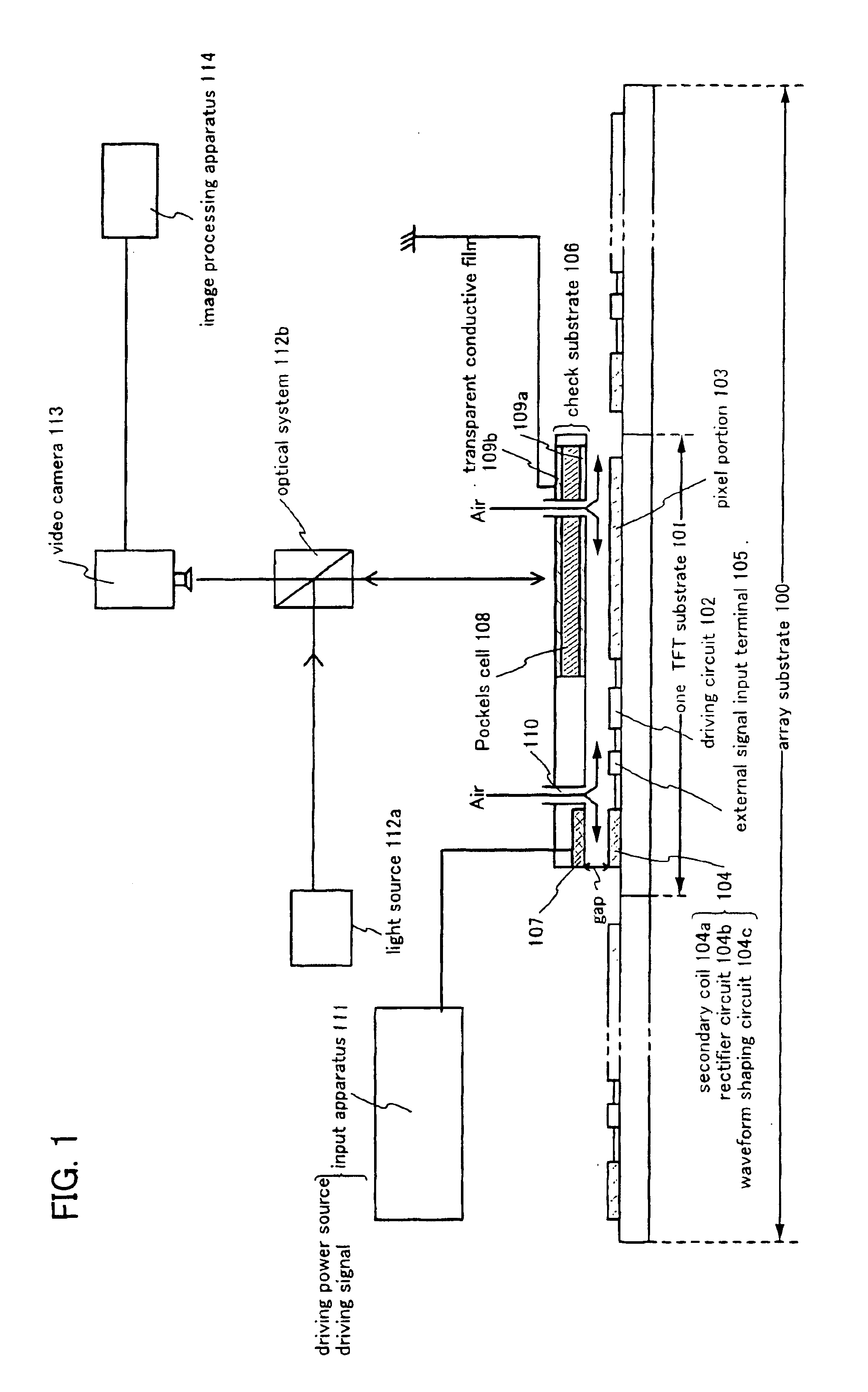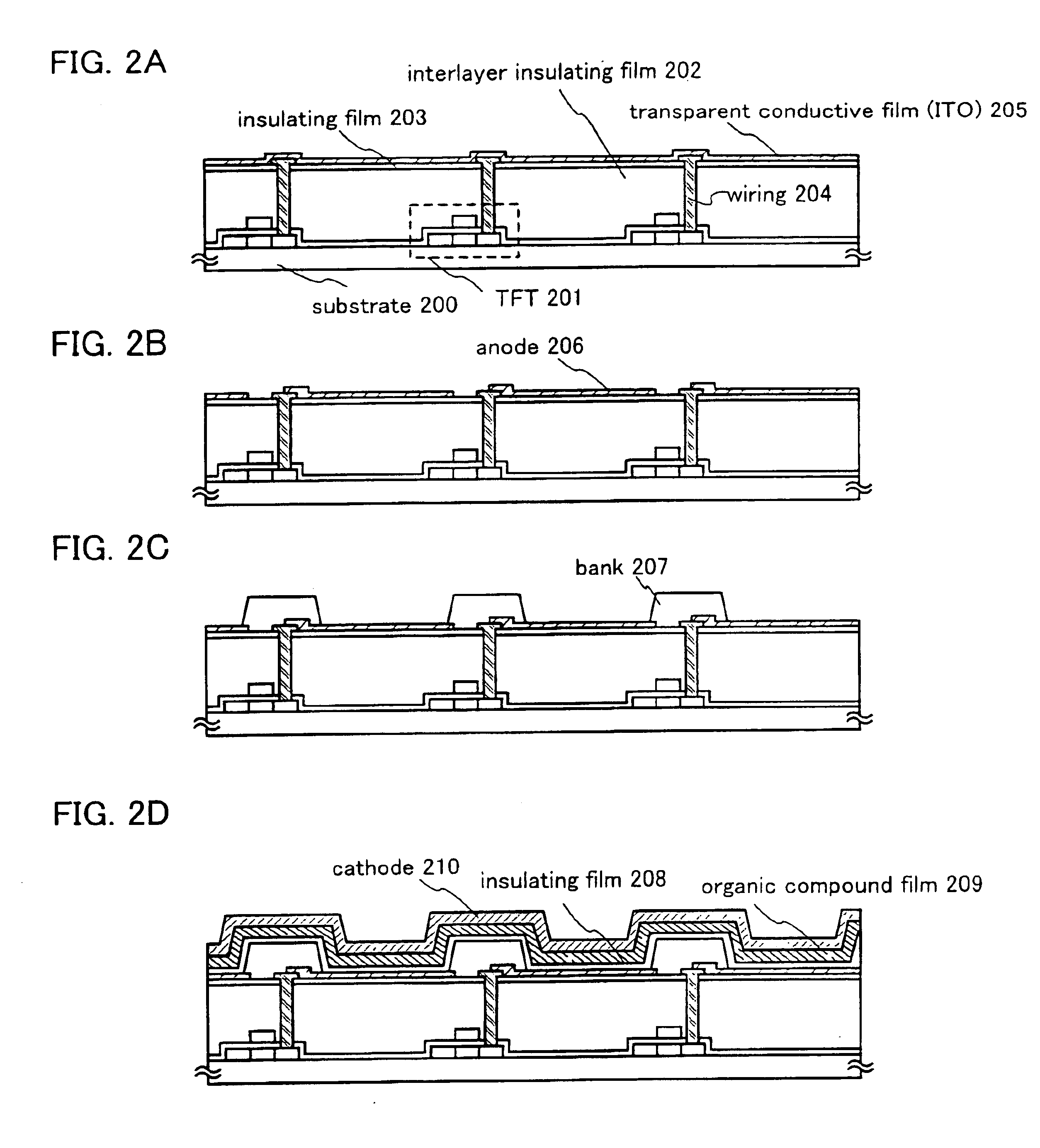Method of manufacturing a semiconductor device
a manufacturing method and semiconductor technology, applied in semiconductor/solid-state device testing/measurement, identification means, instruments, etc., can solve the problems of inability to reduce time and cost, inability to confirm the presence of defects, and inability to reduce packaging and attaching connector processes, so as to prevent a decrease in yield, the inspection process is simplified, and the suitability of a tft substrate for a product can be confirmed.
- Summary
- Abstract
- Description
- Claims
- Application Information
AI Technical Summary
Benefits of technology
Problems solved by technology
Method used
Image
Examples
embodiment mode 1
[0043]In the present embodiment mode, a process of manufacturing a plurality of TFT substrates 101 on an array substrate 100, an inspection process of confirming the quality of manufactured TFT substrates, and a process of forming light-emitting elements on the TFT substrates that are determined to be satisfactory will be described with reference to FIGS. 1 to 5, and FIGS. 20A-B to 23A-23C.
[0044]In the present embodiment mode, the case of forming a light-emitting element on a TFT substrate will be described. However, the present invention is applicable not only to a light-emitting device (EL display) having a light-emitting element, but also to all the electric equipment using a semiconductor element which uses semiconductor characteristics, such as a liquid crystal display device, for example, a transistor, in particular, a field-effect transistor; typically, a MOS (Metal Oxide Semiconductor) transistor and a TFT (Thin Film Transistor).
[0045]First, driving circuits 102 including TF...
embodiment mode 2
[0099]In the present embodiment mode, another inspection method for a TFT substrate will be described with reference to FIGS. 4A and 4B and 6.
[0100]When circuits or circuit elements on a TFT substrate formed on an array substrate are operated, an electromagnetic wave is generated. According to the inspection method disclosed in the present embodiment mode, by measuring the intensity and frequency of the electromagnetic wave, and the intensity and frequency of the electromagnetic wave on the basis of a certain period of time, it is confirmed if a TFT substrate is suitable for a product.
[0101]The intensity and frequency of an electromagnetic wave of a circuit on a TFT substrate determined to be satisfactory (suitable for a product), and the intensity and frequency thereof on the basis of a certain period of time may be previously measured and used for comparison for determining the suitability of a TFT substrate for a product.
[0102]Then, circuits or circuit elements on a TFT substrate...
embodiments
Embodiment 1
[0113]In the present embodiment, a light-emitting element manufactured according to the present invention will be described. Herein, an example of a method of manufacturing a pixel portion having a light-emitting element of the present invention, TFTs (an n-channel TFT and a p-channel TFT) of a driving circuit provided on the periphery of the pixel portion, a secondary coil of a transformer, a rectifier circuit and a waveform shaping circuit for inspecting driving of a TFT substrate on the same substrate will be described with reference to FIGS. 7A-7D to 10A and 10B.
[0114]First, in the present embodiment, a substrate 900 made of glass such as barium borosilicate glass or aluminoborosilicate glass, which is represented by #7059 glass and #1737 glass produced by Corning Co., is used. As the substrate 900, any substrate having transparency can be used, and a quartz substrate may be used. Furthermore, a plastic substrate having heat resistance withstanding a treatment temper...
PUM
 Login to View More
Login to View More Abstract
Description
Claims
Application Information
 Login to View More
Login to View More - R&D
- Intellectual Property
- Life Sciences
- Materials
- Tech Scout
- Unparalleled Data Quality
- Higher Quality Content
- 60% Fewer Hallucinations
Browse by: Latest US Patents, China's latest patents, Technical Efficacy Thesaurus, Application Domain, Technology Topic, Popular Technical Reports.
© 2025 PatSnap. All rights reserved.Legal|Privacy policy|Modern Slavery Act Transparency Statement|Sitemap|About US| Contact US: help@patsnap.com



